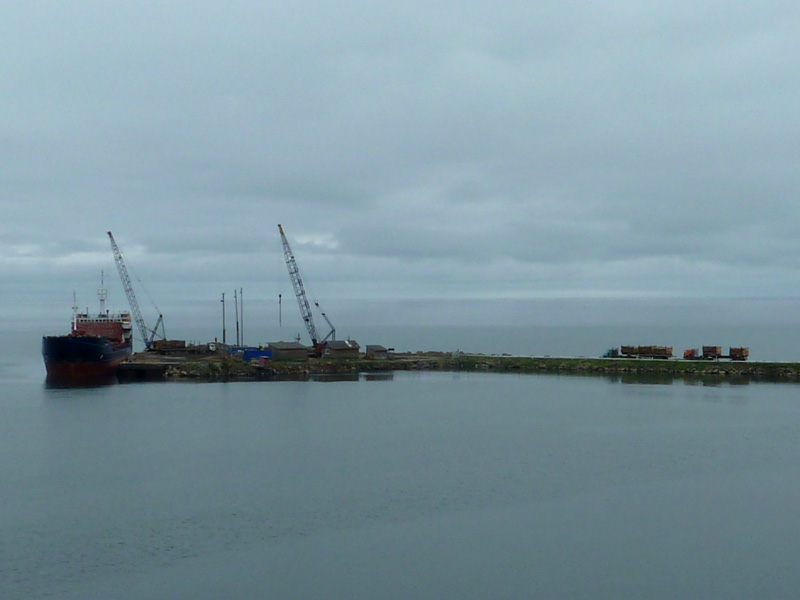
Navigation season of 2022 opened at the remote sea terminal Siziman by the order of Vanino Port Harbour Master, according to the Federal Marine and River Transport Agency (Rosmorrechflot). The first ship, Kapitan Sosenkov (length – 140 m, width – 16 m) owned by Amur Shipping Company was placed at the loading berth on April 4. This terminal is the most remote one of Vanino port’s four terminals. It is located 97 miles north of the Vanino Bay.
Siziman is a bay on the western shore of the Tatar Strait where navigation is possible between April and December. In 2021, the navigation season was closed on December 24. In 2021, the terminal handled 170,000 tonnes of cargo. With the ban on exports of round timber effective from the beginning of 2022, the terminal will handle sawn timber this year.
Vanino seaport is the largest transportation hub in the Khabarovsk Territory located on the north-west shore of Vanino Bay in the Tatar Strait. The port’s vast water territory includes areas in the Vanino and Muchke bays, Tatar Strait and the remote bay Siziman. The port is linked to Transsib and BAM railways.
According to the Harbour Master, Vaninotransugol JSC, resident of the Free Port of Vladivostok, is currently implementing Phase 2 of its project on expanding the capacity of its terminal in Vanino to 24 million tonnes per year. There is another project initiated by Prime JSC, a subsidiary of Kolmar Group, and aimed at introduction of additional coal handling facilities of 16 million tonnes in capacity. Thus, annual turnover of Vaninotransugol can reach 40 million tonnes by 2026.
One more significant investor, Daltransugol JSC (a company of SUEK) obtained a status of the Free Port of Vladivostok resident to implement a project on expanding the capacity of a dedicated coal terminal to 40 million tonnes per year. The project foresees extension of the terminal’s waterfront and construction of a new pier on Cape Muchke for handling of large ships.



